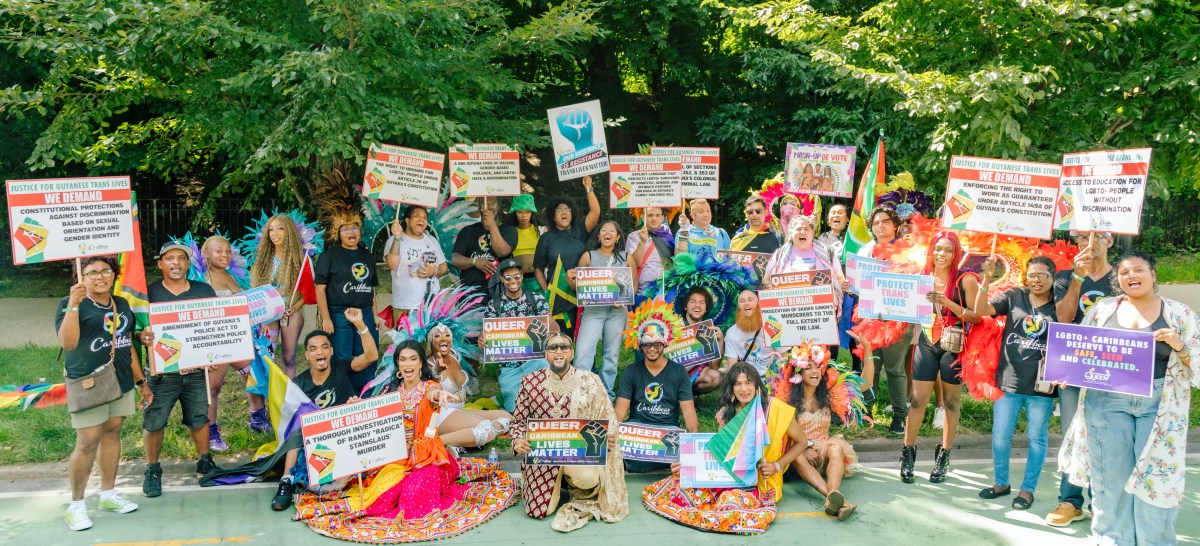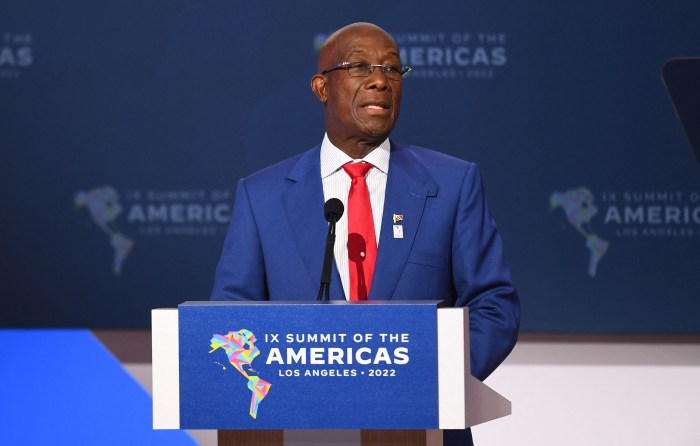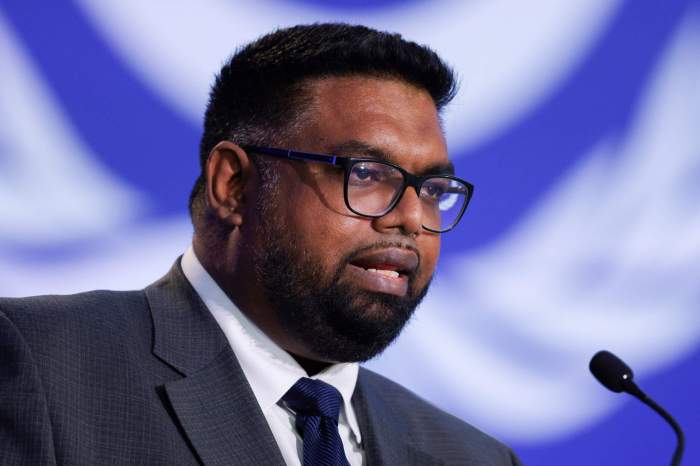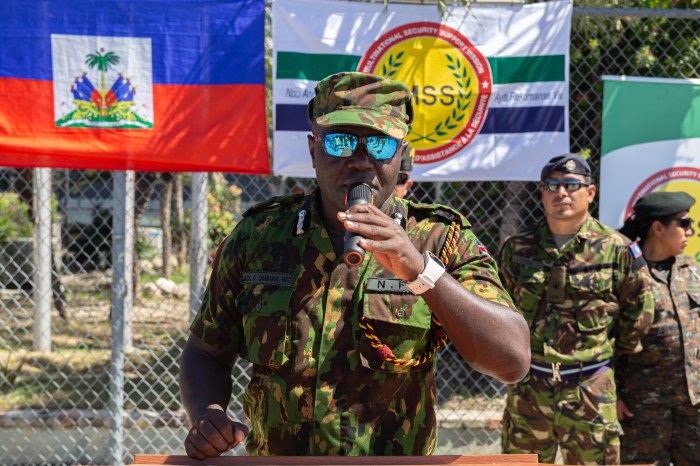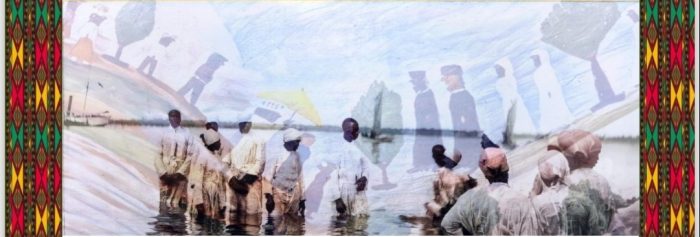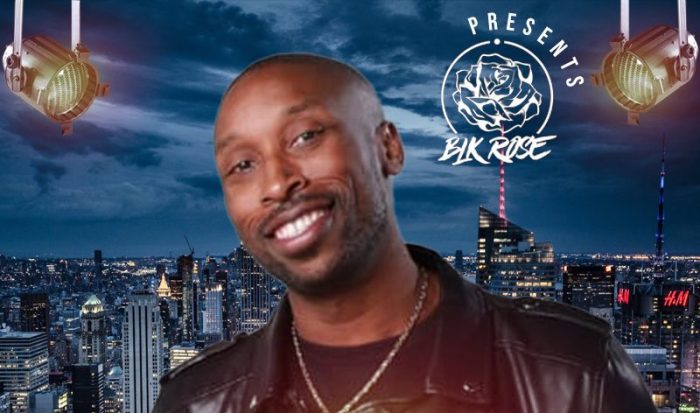Founder and Executive Director of the Caribbean Equality Project, Mohamed Q. Amin, on Thursday, Sept. 5 told Caribbean Life that the Queer Caribbean Liberation Collective, the only LGBTQ+ contingent in the 2024 West Indian Day Parade, marched to demand action, accountability, and justice in response to a string of murders of transgender Guyanese women in the Caribbean region.
He said the march reminds Caribbean patrons of the senseless homophobic and transphobic violence in Guyana and the Caribbean region. The 150+ community members, coalition partners, and activists marched to amplify Caribbean LGBTQ+ representation in front of thousands of spectators and millions of online viewers, celebrating Caribbean cultural heritage. The Carnival Road has always been a place of resistance, centering a history of fighting for freedom and celebrating Caribbean resilience. Carrying powerful demand posters with messages calling for a repeal of Guyana’s archaic post-colonial laws that continue to harm LGBTQ+ people, the contingent increased visibility and inclusivity for LGBTQ+ people at one of North America’s largest Caribbean cultural celebrations.
Dressed in bejeweled carnival costumes, Tiffany Jade Munroe, the Trans Justice Coordinator of Caribbean Equality Project, and Trans activist Twinkle A. Paul led the Queer Caribbean.
“I left Guyana after my parents abandoned me and experienced homelessness. Guyana inherited archaic colonial laws, religious bigotry, police brutality, and oppressive practices from its colonial rulers. The country’s anti-LGBTQ laws are deeply rooted in a history of slavery and indentureship. They breathe selective religious morality, cultivate power, and control practices, leading to a lack of human rights protection. Today, homophobia, transphobia, exclusion, and violence against LGBTQ+ individuals are legitimized with no accountability, which disproportionately impacts transgender people,” said Tiffany Jade Munroe.
Paul, a graduate of John Jay College of Criminal Justice, said, “How many more transgender people must run away, be systematically ignored, be maligned, die, and be beaten.“
“The government of Guyana and the opposition are all complicit, and their silence and in-actions uphold injustices, normalizing violence, and invalidating LGBTQ+ lives. It is unequivocally the responsibility of the Guyanese government to abolish colonial inherited laws that continue to claim LGBTQ+ futures,” said Paul.
Paul added that an epidemic of transphobia has claimed the lives of six transgender women in horrific acts of hate and violence over 12 years in Guyana, most recently as two women since the start of the summer. To date, there has been no action or investment in any investigation by Guyana’s People’s Progressive Party/Civic (PPP/C).
The current party in power and religious leaders have said the statement yet to condemn these senseless and brutal killings of these Guyanese citizens.
“At the 57th annual West Indian Day Parade, after seeing the golden arrow flying high by marchers of the Queer Caribbean Liberation Collective, Susan Rodrigues, a minister within the Ministry of Housing and Water in Guyana, and Oneidge Walrond, the minister of Tourism, Industry, and Commerce, two prominent Guyanese politicians appointed by President Irfaan Ali, stopped to take a picture with the group,” said the reveler.
“However, after reading the messages on the Guyanese LGBTQ+ diasporic community demand posters, the two ministers escape was intercepted by Mohamed Q. Amin, who hand-delivered a press release detailing the organization’s constitutional amendments to the government of Guyana as a call to action to protect LGBTQ+ people, police accountability, and Justice for Guyanese Trans Lives,” said Paul.
“We are calling on the Guyana government to protect trans people. Six trans people in Guyana have been killed in the last 12 years. We expect our president, ministers, and especially our LGBTQ Guyanese people in positions of power like yourself, who come to the diaspora to protect all of us so we can come back home. Our contingent is made of 90% Guyanese asylum seekers who left their country because they were not safe,” said the protesters.
Most recently, on Saturday, Aug. 3, said the group, a transgender woman known to her community as Radica was murdered at the Mahaica Community Center. Radica’s abandoned body was discovered in a pool of blood with multiple stab wounds. Her death comes just less than a month after a gunman fatally shot and killed Shawn Simon, a young and vibrant Afro-Guyanese transgender woman, on July 11, 2024. Radica and Simon are not the first cases of murder.
In 2013, Wesly Holder was tortured, and her lifeless body was dumped in a dark alley. To date, no one has been held accountable, and her death remains a mystery. In 2014, Jason John, also known as Jada, and Carlyle Sinclair, called Tyra, were murdered with the assistance of workers who were employees of Mekdeci Machinery & Construction Inc. (MMC), a privately owned security company. In 2015, again another trans sibling, Noel Nephi, was brutally gunned down, execution style, like Simon.
“The murders of Radica and Simon sent shockwaves throughout Guyana’s LGBTQ+ community, a reminder of the daily struggles for the safety and stability of trans people while illuminating the antiquated post-colonial laws that continue to teach their fellow citizens that harm against LGBTQ+ Guyanese people is acceptable and not worth investigating. Their deaths did not occur in isolation. It is a result of a lack of human rights laws and decades of systemic injustices targeting marginalized LGBTQ+ people in the country. Guyana is the only country in South America where same-sex intimacy is illegal. The law criminalizes ‘gross indecency’ and ‘buggery’ between consenting adults, with penalties of up to life imprisonment. There are no legal protections against discrimination based on sexual orientation or gender identity,” said Amin.
All the murdered trans women were forced into survival sex work due to a lack of employment opportunities, job discrimination, housing inequities, and inaccessible health and gender-affirming care, said the group.
To learn more, go to www.caribbeanequalityproject.org


